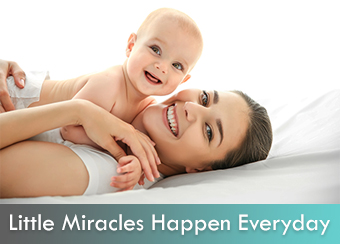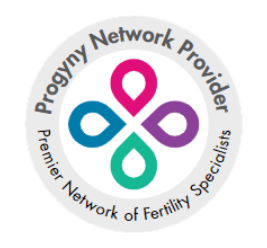Don’t wait for a positive pregnancy test result to focus on your health. Optimize the chances for a quicker conception, and a healthy full-term pregnancy by getting your body ready for a 2021 baby.
It’s Never Too Soon to Focus on Pregnancy Health
The healthier your body is before you try to get pregnant, the better chances you have to conceive within 12 months and give birth to a healthy baby. That’s why we encourage women to begin preparing for conception and pregnancy months or even years before they’re ready to start their families.
Here are things you can do to get ahead of the game.
1. Schedule a preconception appointment with your OB/GYN
The best time to schedule your preconception appointment is when you’re thinking about starting to get pregnant. There, your physician will take a closer look and ask more questions about:
- Whether or not your menstrual cycle is regular (an irregular period means you aren’t ovulating regularly)
- Your diet and lifestyle choices
- Your reproductive history (Have you been pregnant before? Have you experienced a miscarriage, or more than one miscarriage? Have you ever had an abortion? Have you had or been treated for an infection or STD?
Answers to these and other questions will guide your fertility path, determining whether further testing/diagnostics should be performed to identify potential roadblocks before they stymie your plans. She’ll also provide more specific information about how to prepare your body for pregnancy.
2. Understand when you ovulate and your optimal “fertile window”
Every woman is different. So, while we can say things like, “the average fertile window for most women is between day 10 and 17 of their cycle…,” the truth is that your fertile window may not live there at all.
Getting to know your cycle, which takes about three to six months or more of regular tracking is the best way to find your optimal fertile window. These are the days just before ovulation as well as the first 12 to 24 hours after ovulation. By ensuring there are sperm ready and waiting for the egg’s arrival is the best way to conceive. We recommend downloading a fertility app to help you keep track of your cycle.
Read Maximizing Fertility at Home to learn more.
3. Focus on an anti-inflammatory diet
Many of the physical issues that complicate conception are the result of inflammation. This includes the effects of some of the most common female fertility factors such as endometriosis and PCOS.
When you focus on an anti-inflammatory diet, such as a Mediterranean diet, you ensure your body is getting the nutrients it needs, in a healthy variety of lean proteins, veggies, grains, and fruits, and without all of the processed foods that lead to weight gain, insulin resistance, and other factors that compromise your ability to get pregnant.
4. Work as a team to maintain a healthy weight
The emphasis on getting pregnant typically focuses more on the female half of the equation. In truth, a male partner’s health is just as important as yours when it comes to conceiving a healthy baby. Many of the same biological and environmental factors – age, diet, exercise, toxin exposure, etc. – negatively impact fertility for both men and women.
We’ve established that a healthy BMI – 18.4 to 24.9 – correlates to healthier fertility outcomes. And, since maintaining a healthy weight includes watching your diet and getting regular exercise – a healthy BMI is a sign you and your male partner are on the right track.
Visit our post, Boosting Male Fertility, for more information about what men can do to optimize your fertility chances.
5. Know when to see a fertility specialist
Waiting too long to see a fertility specialist means wasting time you could have spent getting an accurate diagnosis and treatment plan in place. Here are the general guidelines for how long to wait before consulting with a fertility specialist:
- Women under the age of 35 years should visit a fertility specialist after trying to conceive for 12 consecutive months without pregnancy.
- Women between the ages of 35-39 years should visit a fertility specialist after trying to conceive for 6 consecutive months without getting pregnant.
- Women 40 years and over should visit a fertility specialist proactively or after trying to conceive for 3 – 6 months consecutive months without success.
If you’ve had a history of miscarriages, an STD that may have caused scarring, or any other reproductive or medical issue known to compromise pregnancy, seek treatment sooner rather than later.
Feel like it’s time to reach out to an experienced fertility specialist near you? Contact us here at the Northern California Fertility Medical Center. We make miracles happen on a daily basis.





